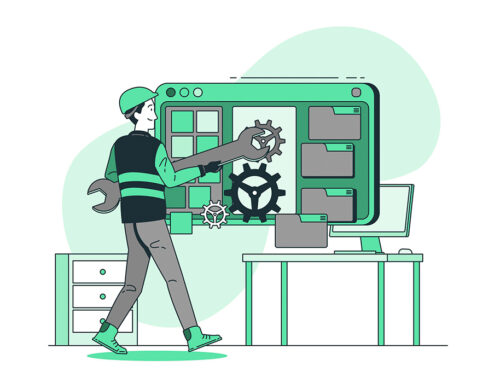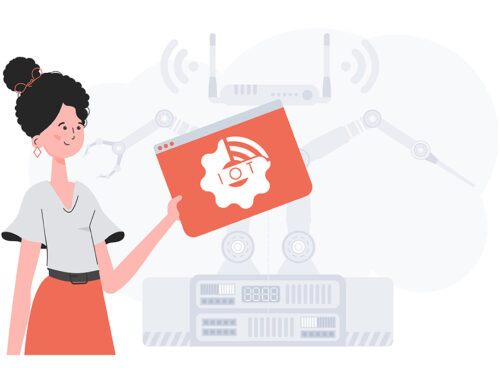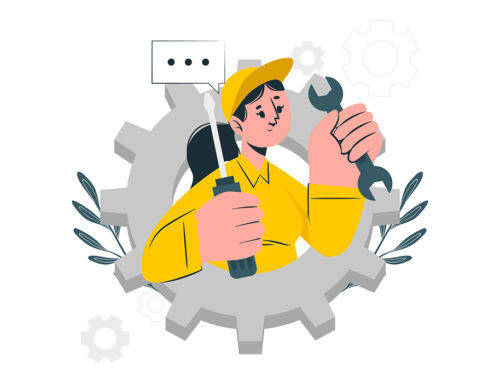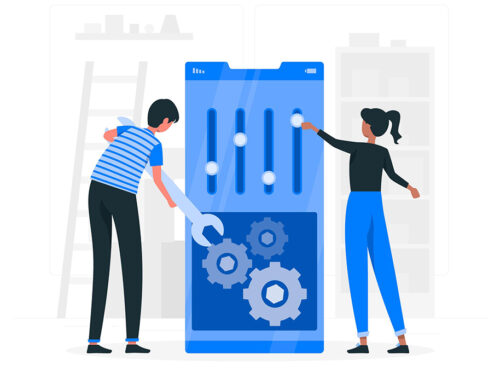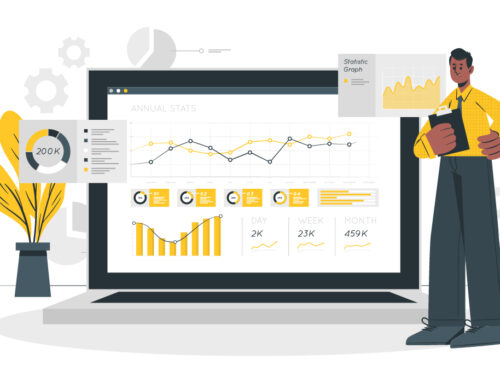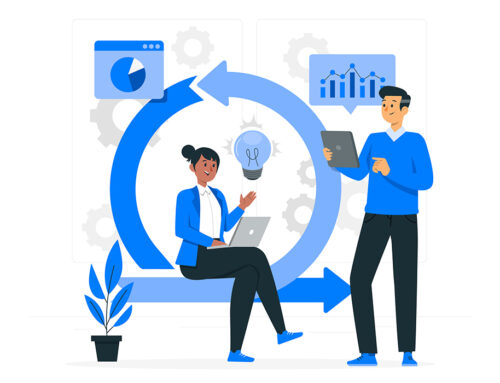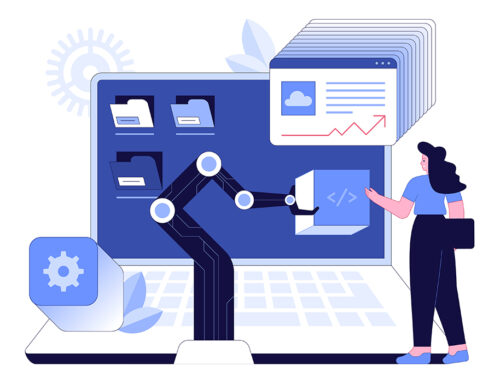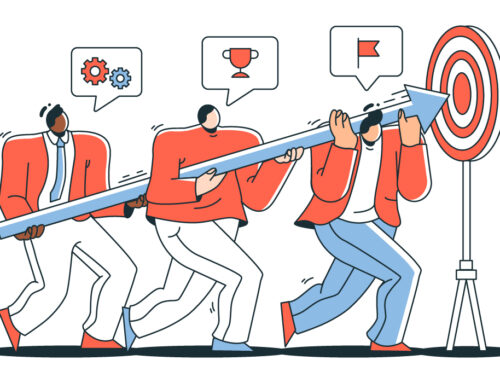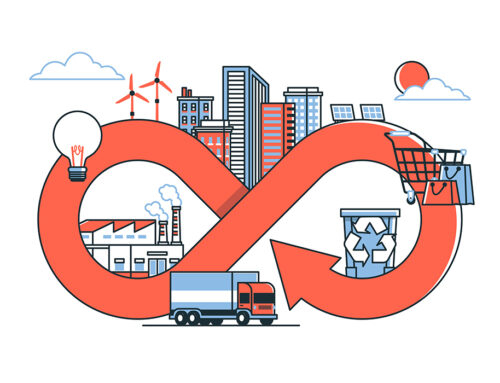There’s a lot to think about regarding digital transformation; connectivity, data storage, choosing the perfect software, and training your team. One thing that can often fall through the cracks is training and improving the skills that all this digitization won’t be able to account for.
Author Nick Saraev

Photo: Freepik
Boosting your team’s emotional intelligence and empathy can lead to increased job performance, job satisfaction, and thriving workplace culture. Your customers will be able to feel your company’s care for them, even as you rely more and more on automation and data.
Oftentimes these competencies are overlooked, and knowing how to grow emotional intelligence within the workplace is a challenge. However, this shift in company culture will eventually make a positive shift in your bottom line.
Emotional Skills Within The Industry
When you think of a way to measure someone’s intelligence, you likely consider their IQ (intellectual quotient.) For years, this was part of the metric that helped companies know which applicants were the most employable. Now, as automation and AI make high-level technical skills more accessible, production teams must focus more on the soft skills that make a good team.
Emotional Intelligence represents a person’s ability to navigate the ups and downs of office life, as well as connect with customers and know what they need. It is the combination of skills that help people to manage their own emotions and the emotions of those around them. This could include self-control, self-awareness, empathy, cultural intelligence, or the ability to take another’s perspective.
The Value of Empathy in Manufacturing
Because centering emotional intelligence is such a major shift for many companies, it can be tempting to simply continue as you have been. Empathy may sound like a strange term in the context of a manufacturing industry, but it is, in fact, hugely beneficial.
Employees within the manufacturing sphere who have a high emotional intelligence are more productive and successful. They can more easily identify and empathize with their coworkers, communicating clearly and quickly with the other members of their team.
These skills can be instrumental in navigating the sometimes-challenging scenarios that arise on the job. Without the soft skills of empathy, self-control, and understanding, chances are good that workers will struggle to generate the level of respect and cooperation necessary.
From multidisciplinary teams to cross-departmental projects, understanding, and support between coworkers form the basis of a successful company. There are plenty of technical skills to focus on, but a lack of emotional intelligence among your team can lead to major issues down the road.
Why Digital Transformation Doesn’t Work Without Empathy
As much as Digital Transformation is about technology, workflows, and execution, much of the change relies on emotional intelligence rather than IQ. More technology being brought in will inevitably lead to a change in the culture, way of working, and behaviors required at work.
One of the biggest reasons for failed digital transformation is employee pushback, something that a high level of empathy can help to combat. Ensuring that conversations around digitization center on the day-to-day impact for team members will help get them excited both professionally and personally.
How Digital Transformation Enables Emotional Intelligence
Digitization and empathy form a symbiotic relationship, meaning you can’t have one without the other. Just as emotional intelligence makes it easier to get buy-in for digital transformation, the changes that happen when you introduce automation, AI, and data literacy can help you become more emotionally intelligent.
Advancements in AI have opened up the floodgates for analyzing how we communicate with one another. By tracking both verbal and non-verbal communication at a rate previously thought impossible, this technology can take the tangled web of customer interactions and discover effective tactics that can be used in every interaction.
AI-driven customer service can affect every stage of the interaction for the better. With the ability to track individual customers’ engagement across multiple conversations, offer suggestions during difficult situations, and give feedback to customer service experts, AI can guide your entire team toward empathy.
Fostering Empathy and Emotional Intelligence Within Your Team
Because there are so many aspects to empathy in the workplace, growing these soft skills can feel impossible. However, when you break the nebulous idea of emotional intelligence into its smaller parts, you can see a path forward start to form.
Motivation
Knowing what makes members of your team tick can help you get them excited about change and growth. Most people are affected by a combination of intrinsic and extrinsic factors. Extrinsic factors include money, external validation, and even fear.
Emotionally intelligent individuals will place more value on intrinsic motivations like pride in their work, the love of the job, and the satisfaction of a job well done. This will keep them going through difficult times and ultimately result in better performance at work.
Ways to encourage intrinsic motivation in your team include
- Listening to Your Team Members – Make sure they feel heard and taken seriously
- Providing Meaningful Recognition – Demonstrate that the company values hard work and dedication
- Celebrating Success – Reward employees for their achievements both big and small
This kind of encouragement allows them to see the value in what they do and keeps them excited about what you’re accomplishing as a company.
Self Awareness
Your team members must understand their own emotions so that they can better manage them. For example, an emotionally aware person will recognize when they are feeling overwhelmed and ask for help rather than push through and risk making a mistake.
Ways to promote self-awareness in your team include
- Encouraging Reflection – Teach your employees how to take a step back and view their behavior
- Promoting Emotional Intelligence – Teach your team to be aware of and emotionally interpret the behavior of others
- Providing Emotional Outlets – Give employees the tools they need to express how they are feeling
By taking the time to understand their emotions and behaviors, team members can put their best foot forward in any situation at work.
Empathy
The ability to understand the feelings of others is paramount for any team to succeed. By showing potential employers or clients that you and your team care about their needs, emotions, and struggles, you can create strong relationships that span across departments and industries.
Ways to foster empathy in your team include
- Asking for Others’ Perspectives – Allow team members to be heard
- Encouraging Collaboration – Offer a safe space to collaborate and come up with potential solutions
- Spreading Patience – Understand that not everyone processes information or solves problems the same way
The benefits of empathy should not be taken lightly. People may respond differently to certain tasks or challenges, and by demonstrating that you understand their struggles, you can foster a sense of community and support within your team.
The Bottom Line `
Digital transformation makes focusing on empathy and emotional intelligence in the manufacturing world not only possible but imperative. The two concepts work together and improve upon each other. By taking the time to learn about your team and encourage empathetic growth, you can ensure your digital transformation is a huge success.
If you want to learn more about digital transformation, how empathy and emotional intelligence are key to its success, and how to make the shift to digitization successfully, make sure you join us for our upcoming seminar. You’ll hear from experts explaining how to create digital-first competencies, manage a large flow of data, and infuse your working environment with all the skills that AI and machines won’t be able to replace.

